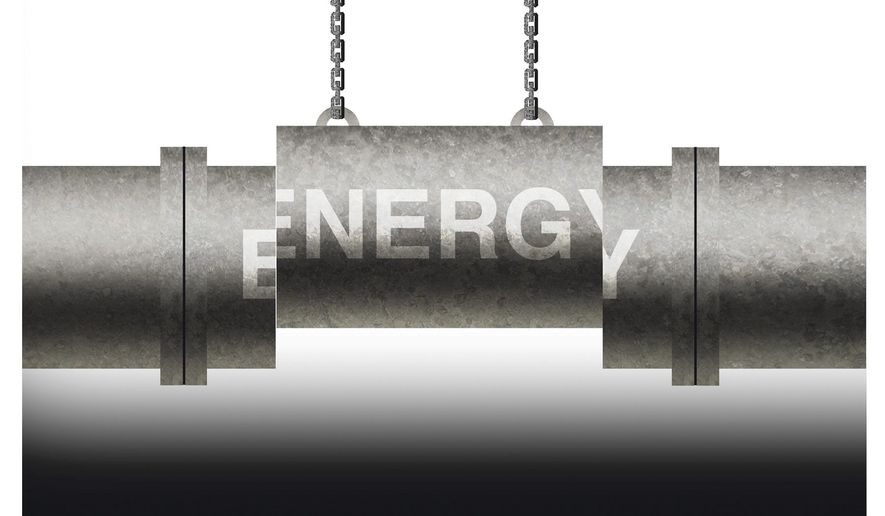OPINION:
President Trump has admirably prioritized America’s energy assets, declaring his administration’s goal of creating an era of American “energy dominance.” But as things stand today, the biggest obstacle to Mr. Trump’s vision is — spoiler alert — President Trump, thanks to his ill-conceived and hasty action to order a 25 percent tariff on imported steel products.
American oil and natural gas production is a steel-intensive industry and relies almost exclusively on specialized steel that U.S. steelmakers no longer produce. If something isn’t done to offer American energy producers access to the steel they need at affordable prices, the president’s plan to establish an “America-First Offshore Energy Strategy” could bottom out.
It’s a sad reality but U.S. steel manufactures make only about 3 percent of the steel needed by the American energy industry. Most U.S. steel manufacturing goes into products like automobiles, appliances, cans and steel used in construction.
The steel needed for pipelines or drilling projects is specialized steel, which must meet certain stress tests and other criteria not needed for most other steel products. As a result of its limited domestic availability, nearly all the steel needed for pipelines or natural gas drilling must be imported. The president’s tariffs on these steel products will not help American steel manufacturers and will only drive up energy costs for all consumers.
In 2017, the U.S. energy industry spent about $8.5 billion on the steel needed for oil and natural gas exploration and production. With a 25 percent tariff, that figure rises to $10.5 billion to drill the same number of oil and natural gas wells. Steel tariffs would drive up the costs of energy distribution and transportation as well. The Keystone Pipeline for example, would see cost increases of $300 million or more, all of which are passed on to American consumers.
Commerce Secretary William Ross conceded this point in a March 2018 op-ed in The Wall Street Journal saying, “It is true that higher steel and aluminum costs could mean price increases for American consumers.”
But it’s not just consumers who would suffer from broad steel tariffs. When President George W. Bush placed tariffs on imported steel in 2002, approximately 200,000 Americans lost their jobs as an unintended consequence of the heavy-handed action.
Steel price increases and lost jobs would throw cold water on what has been a promising economic resurgence since Mr. Trump took office. We can debate if companies like U.S. Steel were shortsighted when they changed their business focus and stopped producing the kinds of steel products needed for domestic energy production, but the simple truth is American steel companies just don’t make the steel needed to find and deliver oil to fuel our vehicles and natural gas to heat our homes.
The president and his advisers are trying to even a large trade imbalance with countries like China and others that openly scoff at our laws and actively work to undermine American industry and manufacturing. But a more strategic, narrower approach is needed to accomplish such a goal. The Trump administration needs to immediately review the impacts of its steel tariff rules and closely examine how such sanctions will hinder American energy production, harm consumers and slow job growth.
As of now, the tariffs placed on energy-related steel products place an unnecessary burden on our own energy producers and, ultimately, energy consumers and without any discernible benefit to our own steel industry.
Renegotiating unfair trade deals and protecting American jobs and the economy from unfair trade practices by other countries was a cornerstone of the president’s campaign and were among his first actions as president. Mr. Trump should be commended for his work to reverse unfair trade agreements and bring more production and manufacturing back into the United States. But, in the case of energy-related steel production, the Trump administration has reached too far with an overly broad “solution” that will only make American energy production more costly, and every consumer pay more.
Without a course correction by the president, we will see more delays in getting new sources of energy online, higher prices for oil, gasoline and natural gas, and energy-related jobs placed in jeopardy.
• Gerard Scimeca is vice president of Consumer Action for a Strong Economy (CASE), the free-market voice for America’s consumers.




Please read our comment policy before commenting.